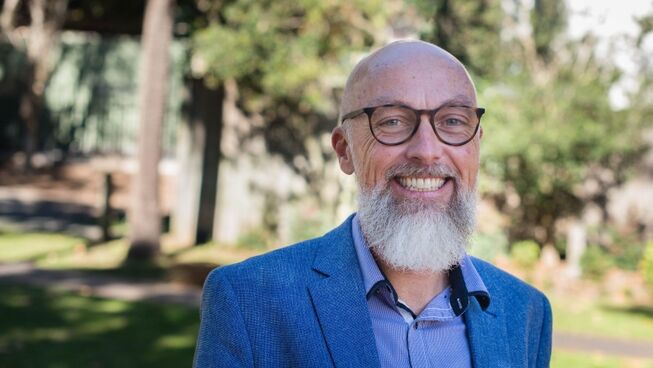
Crisis support service Lifeline had its busiest day ever on Good Friday this year, as the effects of the COVID-19 virus begin to take hold.
Despite only seventy or so deaths to date in Australia, the deeper mental health issues that are rising to the surface, and will probably be with us for several years at least, took a bite out of people at Easter.
According to a report on the ABC news website, 3200 people called into the telephone service on Good Friday, making it the busiest day ever, off the back of the busiest month ever in March. But in a clear demonstration that we’re already going through a tough twelve months mentally in Australia, December 2019 was an equally big month for Lifeline off the back of the bushfires.
According to the ABC report, Lifeline chairman, John Brogden, things came to a head on Good Friday, as the travel and socialisation restrictions took their toll on holiday plans, Easter catch ups and church gatherings.
As the ABC reports Mr Brogden,
“People who would have been on the road or arriving at a campsite or whatever they do for their annual holiday, and might have done for 20 or 30 years, all of a sudden you’re not doing it. You’re sitting at home and you’re concentrating on what you’re not doing more than what you are doing.”
Part of this of course is that when the “noise” stops - the flurry of activity that keeps us busy - the internal voices or concerns that have been suppressed by that noise suddenly come to the surface.
There are many people who phone Lifeline on a regular basis, or attend a mental health service, but the huge increase on Good Friday shows that something more is going on. Something that has been exacerbated by the way normal life has come to a sudden stop and the flurry of noise and activity has died down.
I think the problem is emotional tinnitus. You know what tinnitus is, don’t you? It’s that ringing in your ears you get that you find difficult to mask and for which there is no cure. Tinnitus is the biggest health problem in Australia and results in huge amounts of lost work hours.
I have tinnitus and it can be maddening at times. It’s a result of too much noise damage over the years, most likely for me the product of a misspent youth and loud music. Sometimes, when I am stressed or tired my tinnitus gets super obvious. And it’s there at the moment, even with music on in the background. A constant “weeeeeeeeee” noise in my ears.
Except it’s not in my ears. My brother is the director of Australia’s Hearing Hub, and the Professor of Speech, Language and the Brain at Macquarie University, and he reminded me that we hear with our brains not our ears.
Hence the only way to dull the noise of tinnitus is to get the brain to focus on other things that will dull the sound by simply drowning it out. Otherwise, tinnitus can send you mad. And it does send people mad. In fact, deaf people get tinnitus too.
Here’s the point: with all of the background noise that’s dissipated recently, including those Easter travel plans and barbecue get-togethers and parties, there’s been enough silence for the emotional version of tinnitus to kick in for a lot of people.
Enough quietness and solitude for some of the concerns to rise to the surface. And that emotional ringing in peoples’ ears has led to the phones ringing in record numbers for Lifeline.
During COVID-19 lockdown we’ve all had time to think and perhaps time to listen to what’s going on in ourselves. And for many of us we may not like what we hear.
We may realise that we have masked and covered up, and drowned out, some of the important concerns in our lives by the constant churn and noise of our everyday lives and plans. And often it’s at times such as this that we realise we need a lifeline. And that’s where organisation such as Lifeline come to the fore.
But when you hang up the phone? When the session is over? The key is knowing that there is a lifeline beyond Lifeline, so to speak. What happens when the emotional tinnitus gets louder and louder?
A short-term solution, a band aid fix which would be no solution at all, is always possible. A return to “normal” life might dull that internal questioning or concern. In fact, it looks like if we hold out another month or so, things might go back to normal.
But if you are someone for whom this lockdown is raising bigger questions, and for whom the emotional tinnitus is becoming louder, then perhaps that band aid solution would be the worst thing for you. Perhaps, as the saying goes, you should not let a crisis go to waste.
It’s interesting that one of the things Jesus often said in his teaching was “Let the one who has ears to hear, hear!” Now Jesus was a healer too, and went around unstopping deaf ears. But when he makes that statement, he’s not talking about actual ears, as if those around him had none.
No. Jesus is referencing his teaching about who he is, who we are, and what he came to do. He is saying that only those who can cut through the noise and really listen to what he is saying, will get his message and respond to it.
For there’s plenty of noise - even in those pre-industrial days - drowning out Jesus’ voice and message. There’s the noise of the following crowds, the loud scorn of the religious leaders, the pizzaz and hoopla around this so-called miracle man who can feed thousands with a few loaves and fish. But his actual message? Few are hearing it. Though if you can cut through that noise, then you might actually get what Jesus is on about.
And what is Jesus on about? He’s on about Easter Friday. He’s on about the sacrifice he makes on the cross for the sin and brokenness of the world, for the sin and brokenness of me and you. He’s on about paying the price for the way we stop our ears to the voice of God who calls us to love and obey Him as the one who has created us and knows what is best for us.
It is true that in this age we need the likes of Lifeline, and mental health services. And please use them in the midst of a crisis. But the ultimate lifeline we have is Jesus because he is the one who, ultimately, is life! And he has good news to offer us if we have the ears to hear it.
Good Friday may have been a Bad Friday this year, but it was the worst Friday possible for the followers of Jesus as they watched him be crucified and then die. But if they’d had ears to hear they would have heard Jesus tell them on the road to Jerusalem prior to the cross that he would rise on the third day. Good Friday led to the greatest Sunday of all time - Easter Sunday, Resurrection Day.
The risen Jesus speaks to us. He has something to say. Something important. He offers us a lifeline that won’t be cut off when we hang up the phone. He offers our hearts a rest. He offers our souls the peace that we so desperately need and that no amount of camping trips or parties can offer. Jesus is offering that to us. The only question is, are we listening? Do we have the ears to hear?
At this time, if your emotional tinnitus is coming to the surface, are you willing to hear what Jesus is saying, and take the eternal lifeline he is offering?





